Securing a sustainable future: 7 egg industry commitments to the UN SDGs
‘Sustainability’- a hot topic in the agricultural sector – continues to influence and shape the egg industry and beyond and is set to play a critical role in future practices of production.
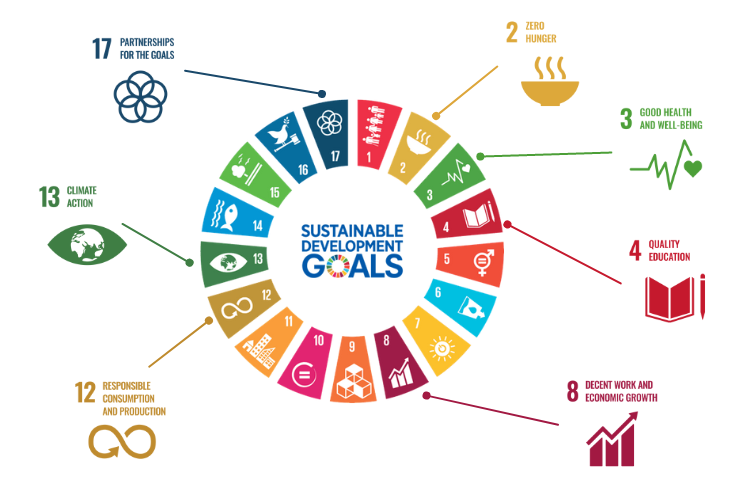
Sustainability encompasses environmental, economic, and social factors and is defined by the United Nations (UN) as “meeting the needs of the present without compromising the ability of future generations to meet their own needs”[1].
In 2015, 193 world leaders committed to the UN’s 17 Sustainable Development Goals (SDGs). These goals represent a shared vision to eradicate poverty and social inequality and tackle climate change by 2030.
Of the 17 goals, the IEC’s Global Initiative for Sustainable Eggs (GISE) has identified 7 primary objectives where the global egg industry is already making an impact.
Goal Two: Zero Hunger
In 2020, the UN estimated that over 30% of the world’s population is moderately or severely food insecure, and 149.3 million children under the age of 5 are stunted [2].
SDG 2 aims to end hunger and malnutrition in adults and children by 2030 by increasing access to safe, nutritious food, and eggs can be part of the solution.
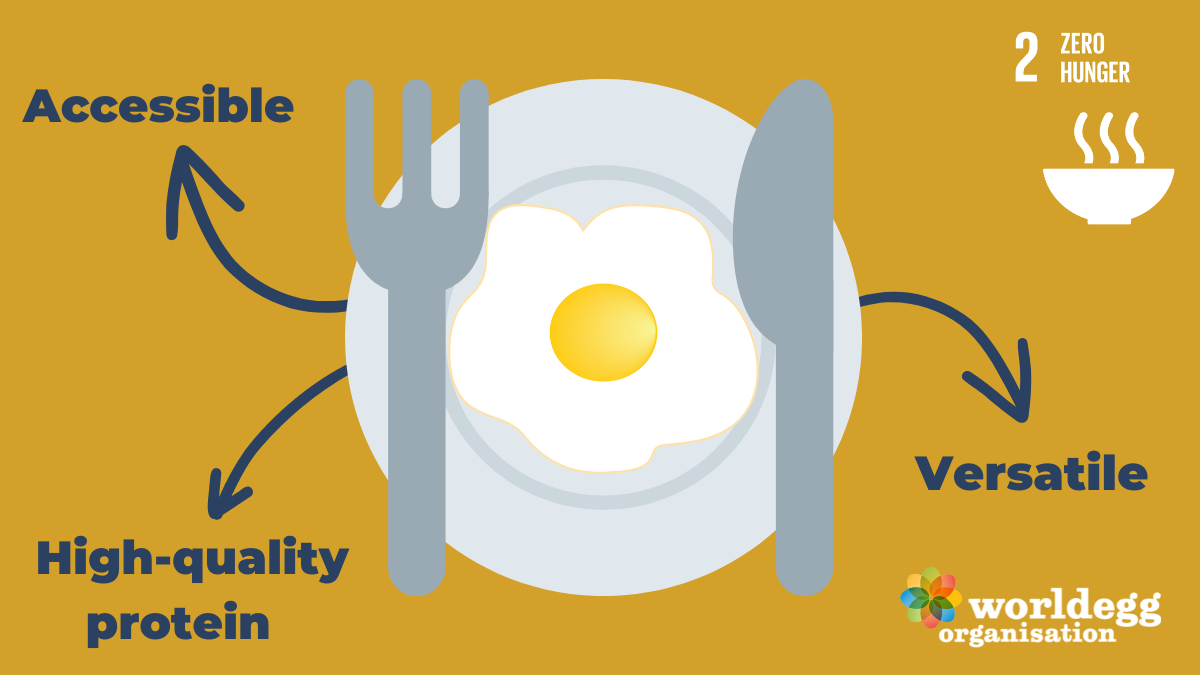
Eggs are recognised as a high-quality protein and are both accessible and versatile. They contain the majority of vitamins, minerals and antioxidants required by the body and have been proven to be associated with better growth, cognitive performance and motor development [3].
A recent study into the effect of eggs on child nutrition and development in Ecuador found that eggs can significantly increase growth in young children and reduce the prevalence of stunting by 47% [4].
The role eggs can play in combatting hunger is acknowledged by egg businesses globally, and many are making an active effort to ensure eggs can be supplied to those in nutritional need. For example, the International Egg Foundation (IEF) deliver a range of programmes in low-and middle-income countries, such as Mozambique and Uganda, where through the provision of resources and training, communities are empowered to sustainably produce eggs, increasing their access to high-quality protein.
Goal 3: Good Health and Well-being
Ensuring healthy lives and promoting well-being at all ages is the focus of SDG 3. Due to their nutrient density and bioavailability, eggs have the capacity to directly improve the health outcomes of both adults and children around the world.
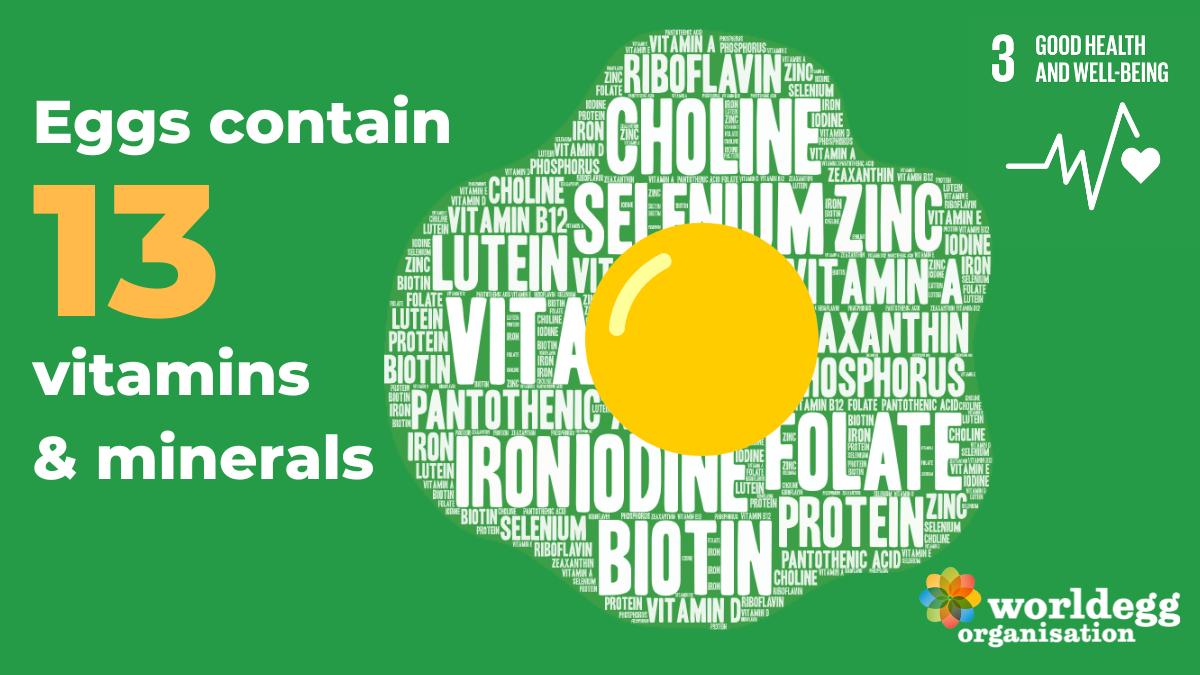
Eggs are a high-quality source of protein and contain 13 vitamins and minerals. This includes commonly deficient micronutrients such as vitamin D, for maintaining healthy bone and muscle structure, and vitamin B12, for reducing fatigue.
Egg nutrition is also evidenced in multiple scientific studies to benefit eye health, cognitive development, immune system function, and foetal development. You can discover more about the nutritional benefits of eggs on our ‘Cracking Egg Nutrition’ page.
Goal 4: Quality Education
Quality education for all is essential for ensuring that people worldwide gain the skills and knowledge necessary to stay healthy, get jobs, and foster livelihoods. Eggs make a great addition to the diets of students of all ages – they contain choline which supports brain development and concentration.
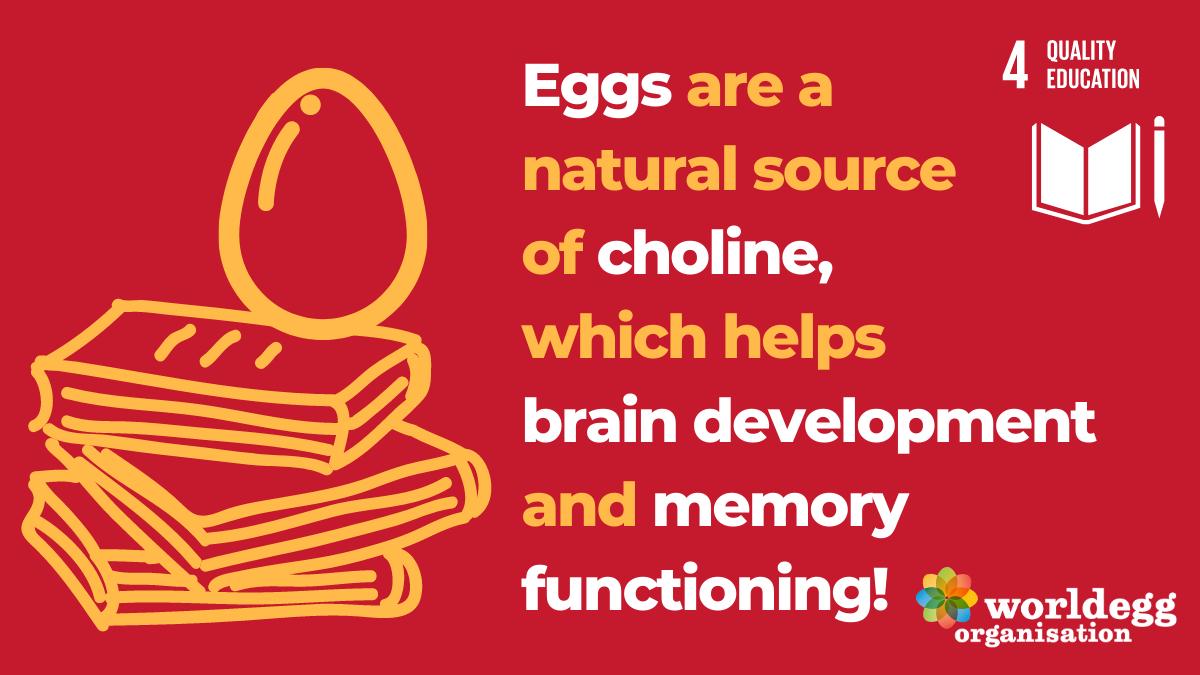
The egg industry is dedicated to increasing awareness of the value eggs can provide in terms of nutrition, environment, and livelihoods.
For example, in Colombia, the National Federation of Poultry Producers of Colombia (Fenavi), run ‘The Golden Line of Nutrition Counselling for the Elderly’ – a telephone service that provides free nutritional education about healthy diets and the role of eggs to older generations, with the support of the Colombian Association of Clinical Nutrition. Advice is provided by health professionals and personalised to each individual.
Additionally, the American Egg Board provide a range of free resources on their website that educate students, from kindergarten through to high school, about the many benefits of eggs, with eggs incorporated into different subject areas such as maths and science.
Organisations like the International Egg Foundation also invest in educational programmes such as ‘Global Egg Schools’ – which provides rural people across Africa with the skills needed to become successful egg farmers. These programmes have encouraged employment, economic growth and improved nutritional health.
Goal 8: Decent Work and Economic Growth
SDG 8 seeks to promote inclusive and sustainable economic growth, employment, and decent work for all, and the egg industry can play a positive role in this.
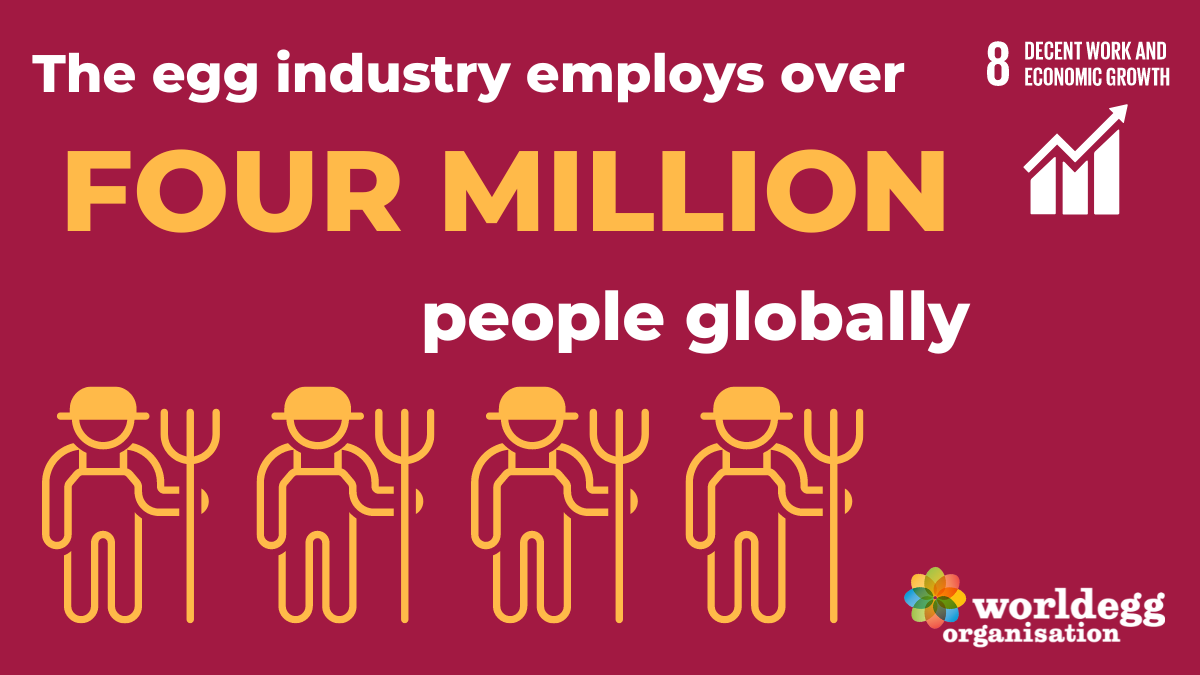
Egg production is already a significant source of income for rural populations around the world, with over 4 million people employed by the egg sector globally [5].
Women make up a significant proportion of farmers (especially in low- and middle-income countries), and there is an active industry-wide effort to increase this inclusivity.
For example, Egg Farmers of Canada (EFC) run a ‘Women in the Egg Industry Program’ to inspire the next generation of female leaders in the Canadian egg industry. Delegates engage in educational opportunities, networking, and industry events, build connections and share experiences. Currently, 1/3 of Canadian Farm operators are women [6].
To unlock the full potential of young egg industry professionals and encourage active engagement of younger generations in the sector, the IEC run the ‘Young Egg Leaders (YEL) Programme’. Participants are provided with mentoring from senior egg industry figures and partner organisations through presentations, leadership seminars, roundtable discussions and unique networking opportunities.
Another key aim of SDG 8 is to eradicate forced labour, modern slavery, human trafficking, and child labour. In 2018, the WEO adopted the Consumer Goods Forum’s resolution on forced labour – this commitment made the egg industry the first global commodity group to take steps to promote human rights and decent working conditions.
Goal 12: Responsible Consumption and Production
The focus of SDG 12 is on sustaining the livelihoods of current and future generations by ensuring responsible consumption and production patterns. Many critical global challenges, such as climate change, biodiversity loss, and pollution, can be attributed to damaging and unsustainable consumption and production, making it essential to take action.
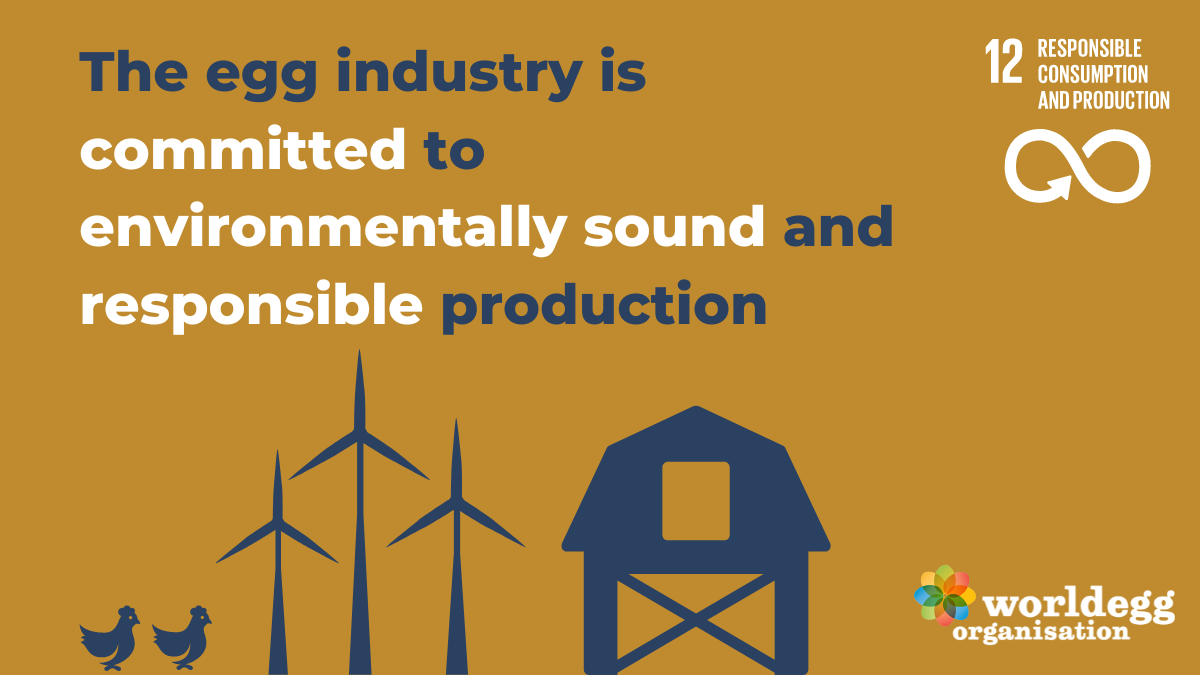
The egg industry is committed to producing nutritious foods in environmentally sound and responsible ways, and many egg businesses worldwide have already made a considerable effort towards this goal.
For example, 10 of the country’s 12 largest egg producers in Australia have already implemented some form of solar energy on their farms [8]. Additionally, in Canada, net zero barns are in operation, where the energy used by the barn is equal to the amount of renewable solar energy created on-site [9].
Egg production can also be circular, with waste products often recycled back into the system to produce further outputs. For example, manure can be used to fertilise the crops that are subsequently used to feed layers – this reduces the need for external inputs and additional energy use.
Eggs are also recognised by the World Resource Institute as a low-impact protein source – hens efficiently convert feed into protein and require a relatively small land base to do so, reducing their environmental impact and effect on biodiversity [10].
Goal 13: Climate Action
The global temperature currently stands at 1.1 degrees above pre-industrial levels and is continuing to rise, bringing with it many climate-induced impacts globally [11].
SDG 13 aims to take urgent global action to combat climate change and limit warming to 1.5 degrees above pre-industrial levels, in line with the Paris Agreement – to achieve this, greenhouse gas (GHG) emissions need to decline by 43% globally by 2030 and reach net zero by 2050 [11].
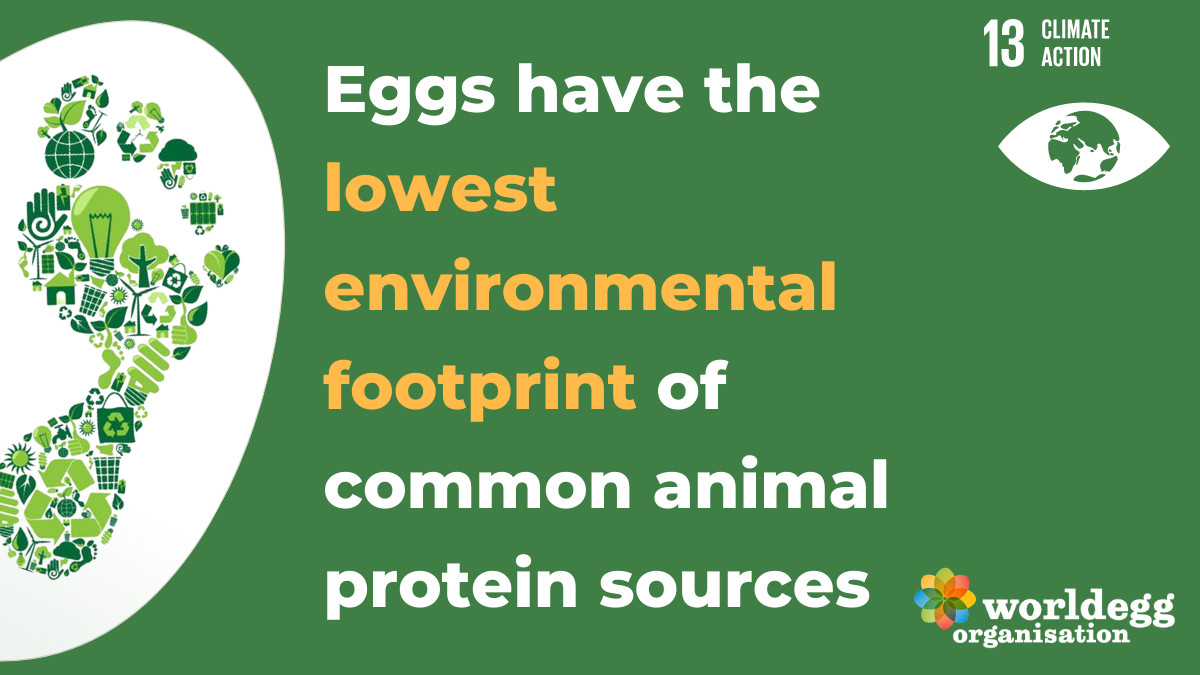
A key way of cutting emissions is by reducing resource extraction and increasing efficiencies; many egg businesses have already made progress towards this goal.
For example, environmental efficiencies in the US egg industry, such as advancements in hen housing systems, feed efficiencies, and manure management, have reduced the industry’s environmental footprint by 65% over a 50 year period and GHG emissions by 71% (1960-2010) [12] [13].
Additionally, a study into the Canadian egg industry revealed a 41% reduction in energy usage between 1962 and 2012 and a 72% reduction in GHG emissions, which can be attributed mainly to investments in renewables and the use of more energy-efficient LED lighting [7].
Goal 17: Partnership for the goals
SDG 17 is focused on ensuring collaborative global action of low-, middle-, and high-income countries to achieve sustainable development goals. It calls for partnerships between governments, the private sector, and civil society.
As a global representative of the egg industry, the IEC plays a vital role in bringing together countries and organisations to achieve these SDGs. The organisation continues to develop constructive relationships with the World Organisation for Animal Health (WOAH), the Consumer Goods Forum (CGF) and major egg associations worldwide, as well as sustaining communication with the World Health Organisation (WHO), the United Nations (UN) and the UN Food and Agriculture Organisation (FAO) to address a range of sustainability issues.
Click here to learn more about egg industry sustainability.
References
[1] United Nations
[3] E3 Nutrition Lab
[5] IEC Economist
[8] Australian Eggs
[9] Egg Farmers of Canada Sustainability Report
[10] World Resources Institute
[12] Pelletier, N, et al (2014)
[13] The Incredible Egg
Shout about sustainability!
To help you communicate about the sustainability credentials of eggs and the egg industry, the IEC have developed a downloadable industry toolkit, including key messages, a range of social media posts, and matching graphics for Instagram, Twitter and Facebook.
Download the industry toolkitEnvironmental Sustainability Expert Group
To support the Global Initiative for Sustainable Eggs, the IEC has brought together experts with an interest in sustainable agricultural food production to champion continuous development and improvement of sustainability practices throughout the egg value chain. The Expert Group will support the egg industry to continue to lead the way in sustainable protein production globally.
Meet the Expert Group
Eggs, the perfect partner for a sustainable diet

Vitamin D served sunny side up
